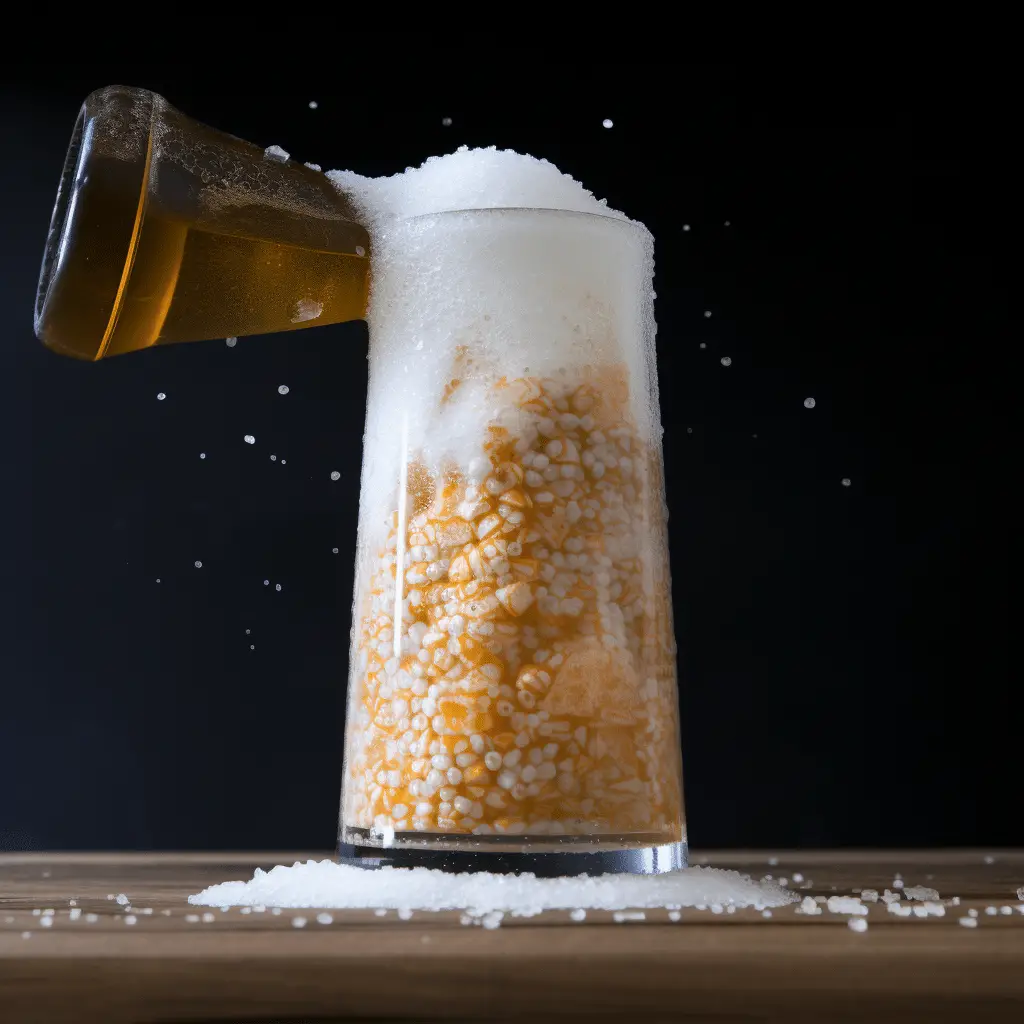
Salt in Beer: Myths, Facts, and Brewing Tips
Beer salt is specially formulated for use in beers. It is coarser than table salt and is often flavored. The popular flavors are lemon, lime, and orange. Some other brands have no added flavors. In the absence of beer salt, one can use table salt but it may not bring out flavors as expected. In brewing, non-iodized salt is preferable to iodized table salt. When using the beer salt, you keep on adding until you get your desired flavor.

Why Do People Put Salt In Beer?
Salt has been added to beers since its invention in the medieval era. Well, you may find it weird, but it happens. It enhances flavor naturally and thus brings out the taste of malt and hops better. It is also assumed to reduce the bitterness and increase bubbles in the beer.
Some brewers are known to add salt to beer during the brewing process. This tradition of adding salt to beer is more common in Mexico, Central, and South America. In this article, we see some myths and facts about salt in beer.
Salt In Beer Brewing
Some brewers use salt moderately in the brewing process. The salt is added in small quantities to enhance flavor without making the beer salty, just like adding a pinch of salt in your meal. However, some beer brands such as Gose, which is made in Germany, are salty. During brewing, this beer is added salt, and coriander, which makes it acquire a salty flavor.
The most common brewing salts consist of calcium chloride, which enhances the hardness of water by adding its calcium levels. Other non- popular salts in the brewing process are Epsom salt, non-iodized table salt, and calcium carbonate.
Hangover Cure
After having some drinks, the last thing you wish to have is a hangover. There are arguments supporting and others opposing the role of salt in preventing hangovers. Makes one thirsty and may thus make one drink more water.
Dehydration can worsen a hangover. Workers in hot, open fields are said to take salt tablets after sweating to replace calcium lost in sweat. Low levels of calcium can lead to low energy and sluggishness coupled with extreme fatigue like in a hangover. Ensuring a stable calcium level often reduces the extent of a hangover.
Salt In Beer Makes You Drunk Faster
Salt enhances the flavor of beer and balances bitterness. This could make one drink much more than when the beer is bitter. Salt does not affect the alcohol content in the beer. Calcium makes the body absorb alcohol faster. The opening to the small intestines, known as the duodenal sphincter, enlarges with the consumption of high quantities of calcium, making the alcohol flow easily to the blood. This fast absorption may make one not get drunk faster.
Salt In Beer Enhance Production Of Bubbles
If you like your beer foamy, with a big head, add a pinch of into it. Be on the watch out because you may end up with an overflow if you add to a full glass. Consider having your glass half-filled before adding to give the beer room to bubble.
When salt mixes with the carbon dioxide in the it results in carbonization, hence excess bubbles which are temporary. After a while the beer gets flat, meaning it’s decarbonized. A fat beer may be unpleasant and unenjoyable to drink.
Salt Reduces Gas In Beer
True, salt helps reduce gas in the beer. As seen above, makes beer produce more bubbles. During this process, gas escapes, and you will ingest less gas as you drink. An alternative way of removing gas in your beer is to serve with a glass tilted at 45 degrees and pour it slowly. This eliminates some gas and will make it a bit comfortable to enjoy your drink. Gulping beer makes you swallow more air, so try taking small sips.
Test For Flat Beers
When served a beer and you doubt it, add some salt to confirm whether it is flat or not. If your beer does not produce bubbles after adding salt, the chances are high that the beer is flat. A good beer should bubble on the sides or form a foamy head. In some instances, it might help recarbonate a flat beer. It may not be necessarily harmful to drink, but it may be less flavorful and might have an odd smell.

Tradition
While growing up, you might have seen your grandfather add salt to and you somehow thought that was cool. Some people don’t have a precise reason for adding into their beer but do it because it’s a tradition. In Mexico, South and Central America where this tradition started, you are likely to be served beer with salt or a slice of lime or lemon on the side. For a beginner, you may want to experiment with a dash of salt in a little amount of beer to see whether you like the taste.
To Reduce Burping And Frequent Urination
The gas in beer makes one burp while drinking. If you wish to minimize this, try adding salt to reduce the amount of gas in the beer. When drinking, you might keep on excusing yourself to empty your bladder. When drinking a beer with added salt may lead to dehydration, reducing the frequency of urination. The body will not have excess water to be eliminated.
In conclusion, salt in beer may be helpful. Add to your beer in moderation. Excess salt may alter the flavor of the beer and may lead to health problems. Persons with thyroid disorders, high blood pressure, and other health problems should be cautious when adding salt to beer.